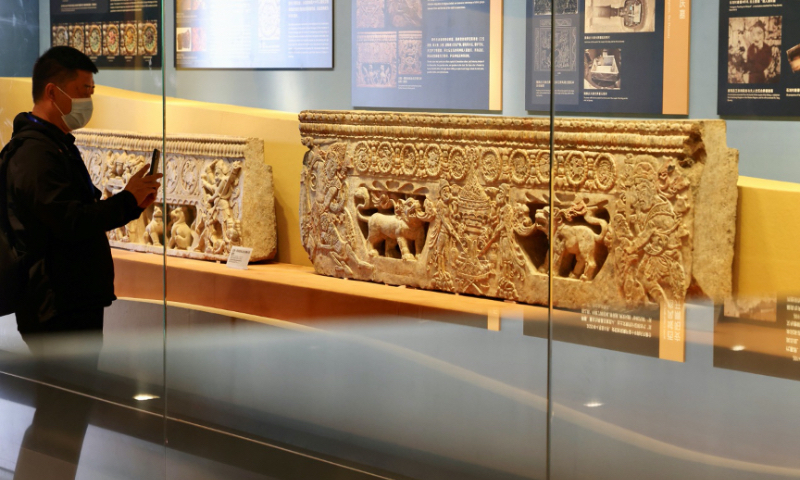A new exhibition, themed Thriving in a Collaborative World: “Belt and Road” Cooperation in Cultural Heritage and Archaeology, kicked off on Thursday at the Palace Museum in Beijing for marking the 10th anniversary of the China-proposed Belt and Road Initiative (BRI).
The exhibition brings together 84 exquisite artifacts from four cultural institutions in Uzbekistan, Kazakhstan, the UAE, as well as 13 collection units from 10 provinces and regions in China.
The four sections of the exhibition feature newly discovered Chinese artifacts from the past decade, such as tri-colored pottery cups in Tang Dynasty (618-907) and panels of stone funeral beds, were repatriated from the US in May along with the gold medals from the Central Asian grasslands, stone sculptures from the Fergana Basin, and blue and white porcelain from the Arabian Peninsula.
Many of these artifacts are on public display for the first time.
By presenting these precious artifacts, the exhibition reveals the historical trajectory of cultural exchange and mutual learning along the ancient Silk Road, showcasing the achievements of joint archaeological research, projection and restoration between China and other countries.
Cultural heritage research institutes from countries including China, Kazakhstan, Uzbekistan and the UAE presented their key collections reflecting communication among civilizations along the ancient trade routes.
Saida Mirziyoyeva, assistant to the President of Uzbekistan, said at the opening ceremony that along the great Silk Road, countries engaged in economic and cultural exchanges based on cooperation and equality. The exhibited artifacts from Uzbekistan fully reflect the evolution of aesthetics and craftsmanship along the Silk Road.
According to Hu Heping, Minister of Culture and Tourism, China has conducted 44 cooperative archaeological projects involving 24 countries over the past decade. The country also took part in 11 international historical monument conservation programs in six nations.
The exhibition will be on display at the Shenwu Gate Exhibition Hall of the Palace Museum until January 5, 2024.
(Global Times)




